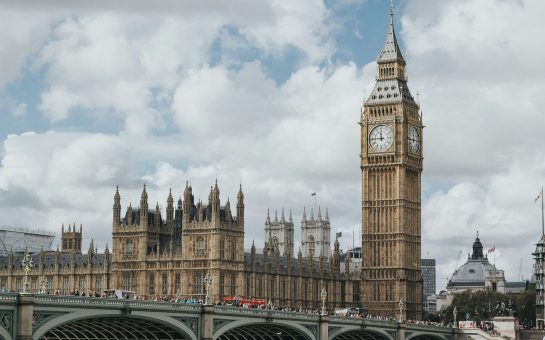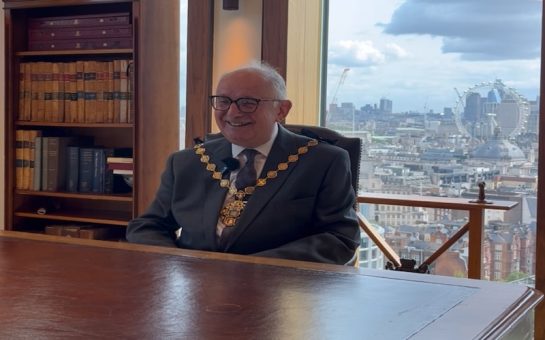An electoral expert has today warned against rushing to change the mayoral electoral system after a record number of voters spoiled their ballots in the London Mayor election this month.
There were more than 114,000 rejected ballots – the highest since 2004 and 2,500 more than Liberal Democrat candidate Luisa Porritt, who missed out on the 5% threshold needed to keep her £10,000 deposit.
Greater London Returning Officer (GLRO) Mary Harpley said: “In 2016, nearly two-thirds of rejected first-choice mayoral votes were due to people voting for more than one candidate as their first choice.
“So, we know that the supplementary vote system used to elect the Mayor of London can result in spoilt ballot papers.”
She added that a clear ‘how to vote’ booklet was sent to every voter and polling station staff were supplied with explanation notes to pass onto voters.
However, it is still unclear why attempts to improve voter education coincided with an increase in rejected first preference London Mayor ballots.
Why were there so many rejected ballots?
This year saw a record 20 mayoral candidates after the Cabinet Office reduced the number of signatures required from each borough to stand from ten to two due to coronavirus.
This forced the GLRO to split the ballot into two sections, potentially adding more confusion for voters.
However, Professor Jeffrey Karp, a political scientist at Brunel University who worked for the Australian Electoral Commission on their preferential voting system, thinks an investigation is needed before changing the voting system on the basis of voter confusion.
He said: “Just because there’s spoiled ballots doesn’t mean people are confused, you have to look and do analysis.
“The spoiled ballots could mean anything. It could mean people deliberately spoiled their ballots because they didn’t like the choices, that’s what they tend to do in Australia.
“It could mean there is growing disenchantment, people are upset for whatever reason.”
He added further regional analysis was needed to see if spoiled ballots correlate with education levels and demographics.
Sources at City Hall on election night admitted they could not tell if the record spoil was confusion or a protest vote.
- On average there were 45,000 spoiled ballots in London mayoral elections before hitting 114,000 in 2021.
- 4.51% of votes cast in the mayoral election were rejected, compared to 0.36% in the 2019 General Election.
- The number of rejected second preference ballots dropped from 450,000 in 2014 to 330,000 in 2021.
The Supplementary Vote system was introduced to give the electorate more choice and independent candidates a fair chance, with voters having the option to put unfavoured candidates first and a bigger political name second.
So far this has worked for smaller parties, with the Greens experiencing a surge after Labour failed to convince voters of their commitment to action on the climate.
In response to the concerns Home Secretary Priti Patel announced plans in March to change the mayoral voting system from Supplementary Vote to First Past the Post, a move labelled by Labour as gerrymandering.
The planned change assumes voters do not understand the current system and journalists find it difficult to report on, however, a spokesperson for London Elects could not rule out voters were intentionally spoiling their ballot.
Labour believe First Past the Post will unfairly open the door to a Conservative candidate in London, as voters are encouraged to back a winning horse, rather than spread support for independents and smaller parties.
Dr Jonathan Mellon from the British Election Study team said: “It’s going to benefit the Conservatives because generally there’s more overlap on the left.
“But the effect is probably not that big on average, I wouldn’t say it’s going to completely rewrite every result.”
This comes as the Government also announced controversial voter ID laws in the Queen’s speech last Tuesday, despite only 33 allegations and one conviction of electoral fraud in the 2019 general election with 47 million people eligible to vote.
Shaun Bailey overperformed on first preference votes in the election, defying pollsters to take 35% to Sadiq Khan’s 40% on first preference – however, Khan still took the election comfortably with 55% after second preferences were counted.
In light of a one seat swing to the Tories in the Greater London Assembly and mayoral victories in Teesside and the West Midlands, moving to First Past the Post might give a Tory candidate control at City Hall in 2024.
Karp thinks the Conservatives should be careful before committing to any electoral changes though.
He said: “The more complicated it is the more likely that people are to be confused, but the real question that the parties want to know is: ‘Who does it benefit?’
“The Conservatives could change the system thinking it’s going to benefit them then it turns out that it won’t.”
Featured Image licensed under Open Government License





Join the discussion
What is a spoiled vote ?